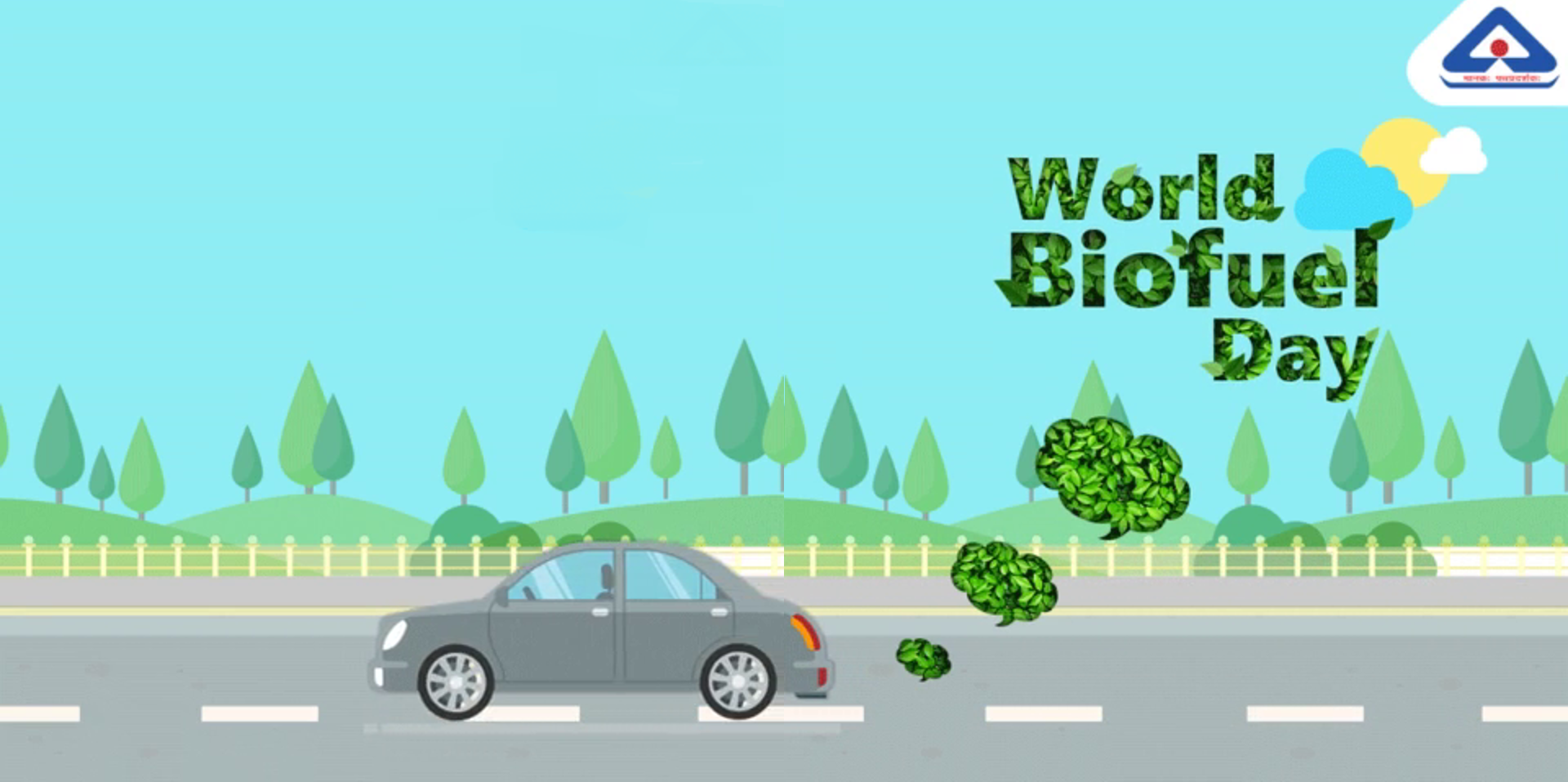

August 10th has been christened as the World Bio-Fuel Day, a step that is a bid towards creating awareness about green fuels, or non-fossil-fuels. It was on this day, back in 1893, when the inventor of the diesel engine, Sir Rudalph Diesel, successfully managed to run a mechanical engine with peanut oil. Thus, to mark this achievement, World Bio-Fuel Day is observed on the 10th of August every year.
About Bio-fuels
Bio-fuels are renewable, sustainable, bio degradable, and environment friendly; and are seen as alternatives to conventional fossil fuels.
The Instance of Bio-Fuels in India
The promotion and encouragement of bio-fuels in India can play a major role in energy security, helping reduce fossil fuel import. Presently, the programme which is being promoted in India is the “ethanol blended petrol programme”, in which ethanol is blended in petrol, ranging from five to ten per cent (subject to permissible limit), depending on availability. Various modes of transports, like State Road Transport Corporations, shipping, and the railways are already using bio-diesel.
Standardization of Bio-Fuels
Recognizing the fact that it is highly important to standardize the manufacture and sale of bio-fuels, the Bureau of Indian Standards (BIS) has come up with a number of standards to ensure quality of available bio-fuels is up to the mark. To encourage the usage of bio-fuels/alternate fuels, the Bureau of Indian Standards has published certain standards which are based on the initiatives being undertaken by the Government of India, like Make in India & National Biofuel Policy. Some of these standards that you should be looking for in bio-fuels are listed below, with the basic prescribed requirements and methods to be followed when sampling or testing particular bio-fuels:
IS 16634:2017 – E85 Fuel
E85 fuel is a blend of anhydrous ethanol and gasoline to be used in flex fuel vehicles. These vehicles are to be equipped with spark ignition engines, designed for such fuel usage. This standard allows for 70 to 85 volume per cent of ethanol.
IS 16629:2017 – ED95 Automotive Fuel
This is about the requirements and methods of sampling and testing for hydrous ethanol. Hydrous ethanol is the main component in formulating ED 95 automotive fuel for modified compression ignition engines.
IS 17021:2018 – E20 Fuel
This prescribes requirements and methods for two octane grades of E20 fuel. E20 is an admixture of anhydrous ethanol (IS 15464) at 20 per cent by volume and ethanol free motor gasoline (IS 2796) at 80 per cent volume, under BS IV and BS VI categories. This is suitable for use in automobile spark-ignition internal combustion engines in vehicles that comply with BS IV and BS VI emission norms.
However, this standard does not purport to address the safety problems that may be associated with its use. It falls as the onus of the user to establish appropriate safety and health practices and to determine the applicability of regulatory limitations before use.
IS 15607:2016 – Bio Diesel (B100)
This prescribes requirements and methods for biodiesel (B100) — fatty acid methyl esters (FAME) for their use in compression ignition engines. It has been designed for using as a stand-alone fuel and as a blend stock for diesel. B 100 stand-alone can also be used for heating applications and industrial engines.
IS 16531:2016 – Bio Diesel, Diesel Fuel Blend (B6 TO B20)
This covers fuel blend grades of 6 to 20 per cent (v/v) biodiesel (IS 15607), and the remainder is an automotive diesel fuel (IS 1460). Collectively, these are designated as B6 to B20. These BS III and BSIV blended grades are suitable for different types of suitably designed diesel engines.
The standard prescribes requirements, sampling procedure, and test methods for B6 to B20 biodiesel blends at the time and place of delivery. This fuel also finds application with non-automotive engines that are designed accordingly.
IS 15958:2016 Bio Gas (Bio-methane)
This standard is for requirements and methods for compressed natural gas (CNG) used for automotive purposes. This standard is only for CNG that is used in vehicles.
CNG that is delivered to a fuel refuelling station may vary in supply composition in vehicles. Any alteration that occurs in this respect becomes the responsibility of both the supplier and the refuelling station operator to determine the operating conditions accordingly.
IS 16704:2018/ISO 16861:2015 Dimethyl Ether (DME)
This specifies characteristics of DME that is used as fuel. In DME, the main component is dimethyl ether, synthesized from organic raw materials. This standard is applicable when SME is used as heating fuel, industrial fuel, or to replace diesel fuel or gas oil. If additives are necessary for specific end-use applications, they are not covered under this standardization.
IS 1460:2017 Automotive Diesel Fuel Specification
This is for blending biodiesel in diesel up to 7% in BS IV and BS VI fuels. It describes the methodology for the estimating bio-diesel in diesel using infrared spectroscopy as well as for estimating oxygen content in the bio-diesel.
Being aware of the basic standardizations and requirements for good quality bio-fuel forms an important part of moving towards the promotion of such alternates.

Written By: Nagamani.T, Scientist ‘D’, PCD
Go Back